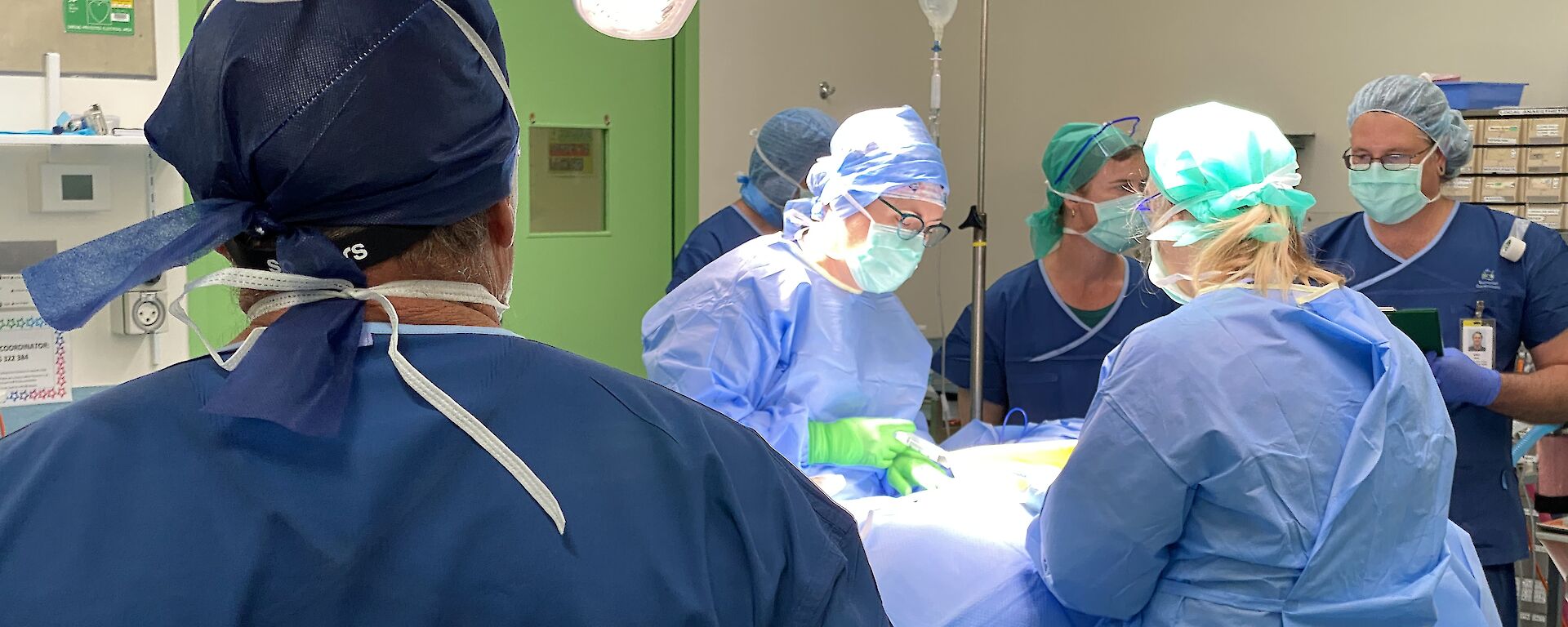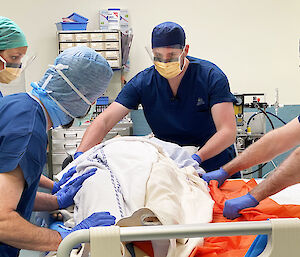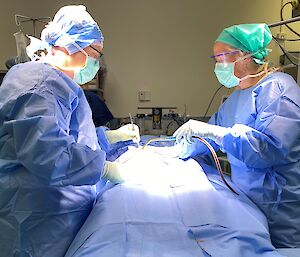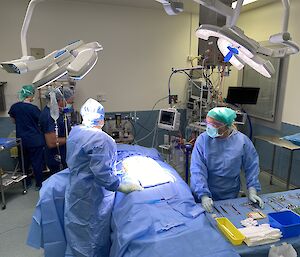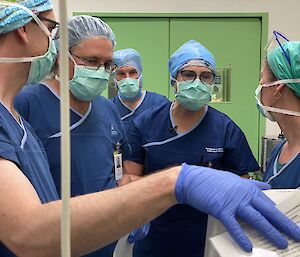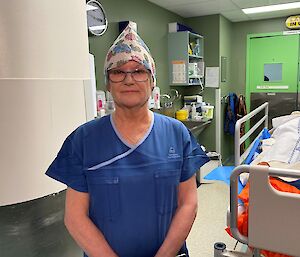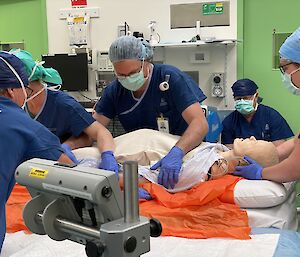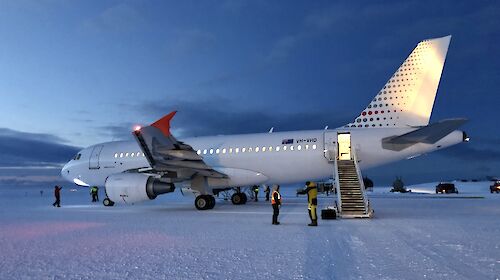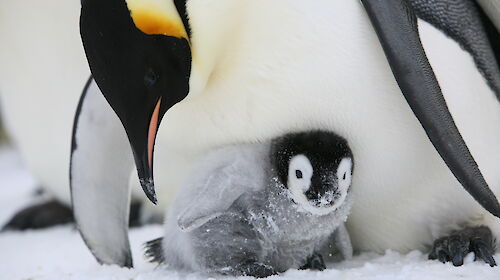A group of eight expeditioners – scheduled to depart for Mawson and Davis research stations in February – have completed an intense fortnight of training at the Royal Hobart Hospital.
They’re now equipped to work on the Antarctic stations as Lay Surgical Assistants, on hand and ready to assist each single station doctor in the event of an emergency.
It’s hoped they won’t have to use their new-found skills, but, if the event arises, they’ll be ready to step in.
Antarctic Medical Practitioner Dr Kate Kloza is preparing for a year at Mawson station and guided her team of potential assistants through a serious case of appendicitis on a life-like dummy patient.
“It’s really the first chance to meet the people I’m going to be working with during the season,” she said.
“The scenarios we run through together is a great chance to see how we each work individually, potentially what people’s strengths and weaknesses are and how we can start to bond with communication and the way we’re going to work together.”
A world-leading training program
The Lay Surgical Assistant program is the result of a unique partnership between the Australian Antarctic Division and the Royal Hobart Hospital, where the training takes place.
Course Coordinator Dr Chris Wilde is a specialist anaesthetist at the RHH and a pre-hospital and retrieval consultant with Ambulance Tasmania.
He’s also responsible for presenting some “curveballs” at the team during their sessions practicing surgery and anaesthetic skills.
“Some of those curveballs were unintentional but they did really well, they picked up immediately that there was an issue, either with vital signs or the patient changing or the ventilator not delivering what they’d requested it to,” he said.
“And they picked up early on that and had a discussion with the doctor and worked out a plan, how to safely keep the patient asleep – and fix the problem as well, they sailed through that.”
Invaluable opportunity to assist in realistic scenarios
Dr John Cherry will be the station doctor at Davis for the coming season.
“It speaks to the relationship that’s existed between the Antarctic Division and Tasmania’s Department of Health for the last 40 years – and the collaborative relationship that has supported expeditioners to train before the head south, to prepare for the possibility of performing an operation,” Dr Cherry said.
“Obviously we hope that never happens, but the training ensures we’re able to provide that service to expeditioners if that need arises.”
“Really here in Tasmania we’re world leaders when it comes to medical training doctors and personnel for managing medical events in remote and extreme environments.”
Dr Kloza agreed that despite the best planning and safety measures, things could always go wrong in Antarctica.
But she said she had “every confidence that if we have to do any surgical or medical procedures for anybody, they’re going to be in the safest hands possible.”
“To see people from really diverse backgrounds step into a field that’s so different for them and doing so with courage and confidence, is wonderful to see.”
A privilege to take part: what the tradies said
Jordan Smith, chef – “I’ve never done LSA before, so it’s pretty exciting. It’s a real privilege to be an LSA in Antarctica.”
Richard Norris, boilermaker – “Being a boilermaker is a fair bit different to this. 37 years so I’m pretty experienced at that, but this is a totally different thing – and sharing the knowledge, and the friendship.”
Kerryn Oates, chef – “It was great, it was good to do a proper scenario from start to finish with the team that will be on station with us, it was awesome. I’m used to being on my feet all day and you do what you have to do.”
Tom Jurs, carpenter – “Just to be thrown into a completely different world - you’d have no normal business walking from a construction site into a hospital room and assisting with surgery, it has been incredibly stimulating and rewarding.”
Job applications for the 2021/22 Australian Antarctic season are open until January the 21st.
For more information, go to jobs.antarctica.gov.au

